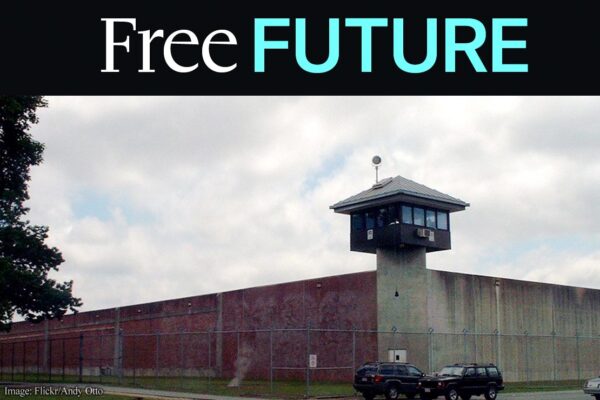Class Certification Filed Against Overcrowded, Inaccessible Nebraska Prisons
Constitutional Violations and Lack of Dignity the Result of Mass Incarceration Crisis
LINCOLN, Neb - Today the ACLU of Nebraska, the ACLU National Prison Project, Nebraska Appleseed, the National Association of the Deaf, and the law firms DLA Piper and Rosen Bien Galvan & Grunfeld LLP filed a motion for class certification in Sabata v. Nebraska Department of Correctional Services. The case asserts that extreme overcrowding in Nebraska prisons has led to violations of the constitutional rights of the people who are incarcerated within them, including: lack of adequate medical, mental health, and dental care; overuse of solitary confinement; and failure to provide appropriate accommodations for prisoners who are blind, deaf, hard of hearing or have other disabilities.
Nebraska’s prison system is one of the most overcrowded in the nation. The entire system is at approximately 160 percent of its design capacity, with individual prisons approaching 200 or even 300 percent of capacity. The intake facility currently maintains a population which is more than 330 percent of its design capacity.
New data from the fourth quarter of 2018 also point to significant racial disparities. Almost 28 percent of people in Nebraska prisons are Black, though just four percent of the state population identifies that way. Similarly, 14 percent are Latinx, though just 9 percent of Nebraskans are.
“Nebraska remains an extreme outlier in terms of overcrowding, staff shortages and dangerously inadequate systems of medical and mental health care,” said David Fathi, director of the ACLU National Prison Project. “The level of overcrowding in Nebraska prisons today is comparable to that in California in 2011, when the U.S. Supreme Court found that overcrowding had made adequate medical and mental health care impossible and created unsanitary and unsafe conditions. The court ordered California to reduce this overcrowding, as it made constitutional violations unavoidable.”
The Nebraska prison system cannot provide even minimally humane conditions for incarcerated people. These violations disproportionately impact the system’s most vulnerable prisoners, particularly those with mental and medical health needs as well as those with disabilities.
“Prison systems are too often completely inaccessible to deaf and hard of hearing people, as well as people with other disabilities,” said Howard A. Rosenblum, Esq., CEO of the National Association of the Deaf. “Nebraska's prisons, given their numerous systemic problems and failures to provide any semblance of access, are even more oppressive for this population. Deaf and hard of hearing people are often singled out by prison staff for not following orders that they never heard at all or clearly. Yet, these people are punished for such 'violations' that arise from the lack of accessibility. Nebraska needs to overhaul how it imprisons persons who are deaf or hard of hearing, as well as all people with disabilities.”
“The conditions in Nebraska’s prisons aren’t just unconstitutional, they actually obstruct the stated goal of rehabilitating the people they incarcerate,” said Michael Bien, co-founding partner at Rosen Bien Galvan & Grunfeld. “When people are not provided access to basic treatment, programs, and activities necessary for their rehabilitation, it actually perpetuates a cycle of mass incarceration that corrections are intended to deter.”
“This case is about racial justice, disability rights, mass incarceration and identifying solutions to effectively address our shared public safety goals that won’t bankrupt Nebraska taxpayers,” said Danielle Conrad, executive director of the ACLU of Nebraska. “The vast majority of incarcerated Nebraskans will return home to our communities and we need to work together to ensure they have access to treatment, programming and basic services so they can be productive members of society and ease taxpayer burdens.”
“People with mental health needs are experiencing undue trauma because of woefully deficient care, including delayed and denied treatment,” said Robert McEwen, legal director for Nebraska Appleseed. “People’s pleas for help managing their serious mental health conditions have gone unanswered, while others have been improperly medicated or moved to solitary confinement, where the isolation exacerbated their suffering. This is an urgent crisis that’s already had grave consequences for human beings struggling with mental illness."
The class certification filing documents are available here.


